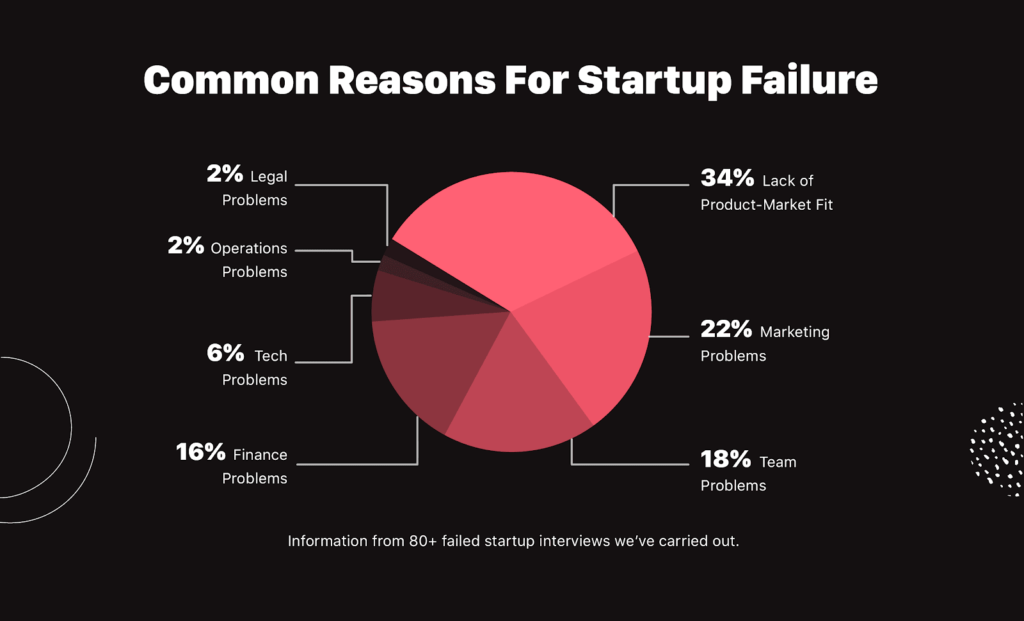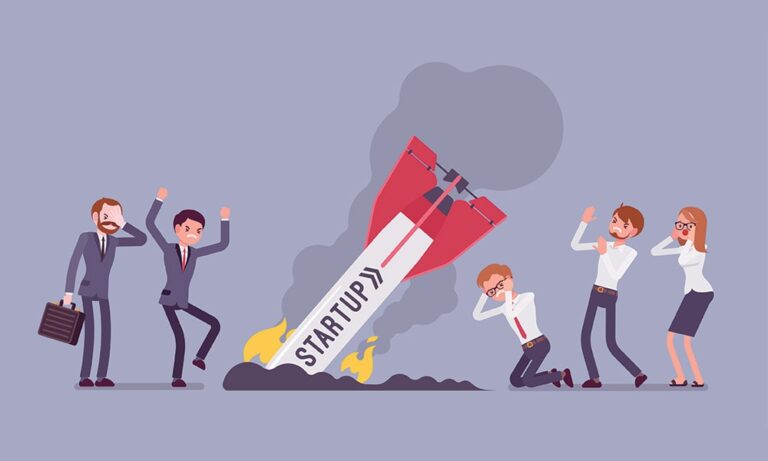Have you ever dreamed of launching your own startup, only to see it crash and burn? 💔 You’re not alone. My journey as a startup founder was a rollercoaster of excitement, challenges, and ultimately, failure. But here’s the twist: that failure became my greatest teacher.🚀 Let’s dive in and explore the hard-earned lessons that transformed my startup failure into a stepping stone for future success.
Surround Yourself with the Right Team
Building a successful startup isn’t a solo journey; it’s a collaborative effort that requires a strong, diverse, and talented team. When I reflect on my startup experience, I realize that surrounding myself with the right people could have made a significant difference in our outcomes.
The Importance of a Well-Rounded Team
A well-balanced team brings diverse skills, perspectives, and experiences to the table. Here’s why it’s crucial:
Complementary Skills: No single person can excel in every aspect of running a business.
Innovation: Different viewpoints lead to creative problem-solving.
Workload Distribution: Tasks are shared, reducing burnout and improving efficiency.
Accountability: Team members keep each other motivated and on track.
Timing Matters
In the world of startups, timing can make or break your venture. While a great idea and a solid team are crucial, launching your startup at the right moment can significantly impact its success. Let’s explore why timing is so critical and how it can affect various aspects of your business:
Market Readiness
One of the most important factors to consider is whether the market is ready for your product or service. Here’s a breakdown of market readiness factors:
Factor | Impact on Timing |
|---|---|
Consumer demand | High demand indicates good timing |
Competitor landscape | Less saturation suggests better timing |
Technological advancements | Align with or slightly ahead of current tech |
Economic conditions | Stable or growing economy is ideal |

Opened the Startup at the Wrong Time When the Market Was Down
Timing is critical in the startup world, and unfortunately, our venture coincided with a significant market downturn. This unfavorable economic climate presented numerous challenges that ultimately contributed to our startup’s failure. Here’s a breakdown of the key issues we faced:
Market Conditions
Reduced consumer spending
Investor hesitancy
Increased competition for limited resources
Impact on Our Startup
Difficulty securing funding
Lower-than-expected sales
Higher operational costs
Hiring Freshers Instead of Experienced Professionals
In the journey of building my startup, one of the critical mistakes I made was prioritizing cost-saving over expertise by hiring freshers instead of experienced professionals. While this decision seemed financially prudent at the time, it ultimately contributed to the downfall of the business.
Lessons Learned
Startups need to find a balance between hiring affordable talent and having the right level of expertise on board. Training freshers takes time and can delay critical tasks. It’s essential to hire experience where it’s most needed, particularly in key roles. Professionals who bring domain knowledge can fast-track growth and contribute to strategic decision-making.
Excessive Work Pressure and Client Meetings Overwhelmed the Team
As our startup began to gain traction, we found ourselves facing an unexpected challenge: the overwhelming pressure of work and client meetings. This experience taught us valuable lessons about managing workload and maintaining team morale.
What We Learned:
While maintaining client relationships is essential, it’s also important to allocate time efficiently. Prioritizing tasks and finding a balance between client management and business development is crucial for scaling. If too much time is spent in meetings, opportunities for growth and innovation are lost. It’s vital to have streamlined client communication and dedicate time for prospecting new clients.
Successful Freelancer but Struggled to Run the Business
Many successful freelancers decide to start their own businesses, assuming their skill set will translate into effective entrepreneurship. However, in our case, despite being successful freelancers, we found that running a business required a different skill set altogether. Managing operations, scaling, and handling business functions was very different from delivering high-quality freelance work.
What We Learned:
Being an excellent freelancer doesn’t necessarily mean you’ll be a great entrepreneur. Running a startup involves much more than doing the core work; it involves leadership, management, strategy, and operations. Freelancers looking to start their own businesses need to invest in learning business management skills or bring on partners who can fill those gaps.
In conclusion, though our startup failed, the lessons we took away from the experience are priceless. Market validation, financial management, team dynamics, adaptability, and the ability to let go are all critical components of building a sustainable business. Entrepreneurs must be prepared to navigate these challenges with resilience and an open mind. With these lessons in hand, our future ventures are bound to be stronger, smarter, and better equipped to succeed.

🏆 Upwork Top Rated Professional ⭐ 5-Star Ratings
🔰9+ years of experience
⌚ Full-Time Availability
ASP.NET CORE | REACT | ANGULAR | NODE JS | WEB API | C# | MVC | SQL | PHP | MICROSERVICES | DOCKER | SQL SERVER | NoSQL | Blazor | CLOUD | AWS | Azure | Astro | VUE




